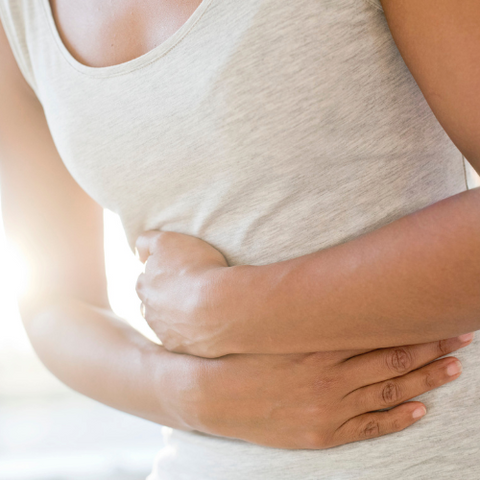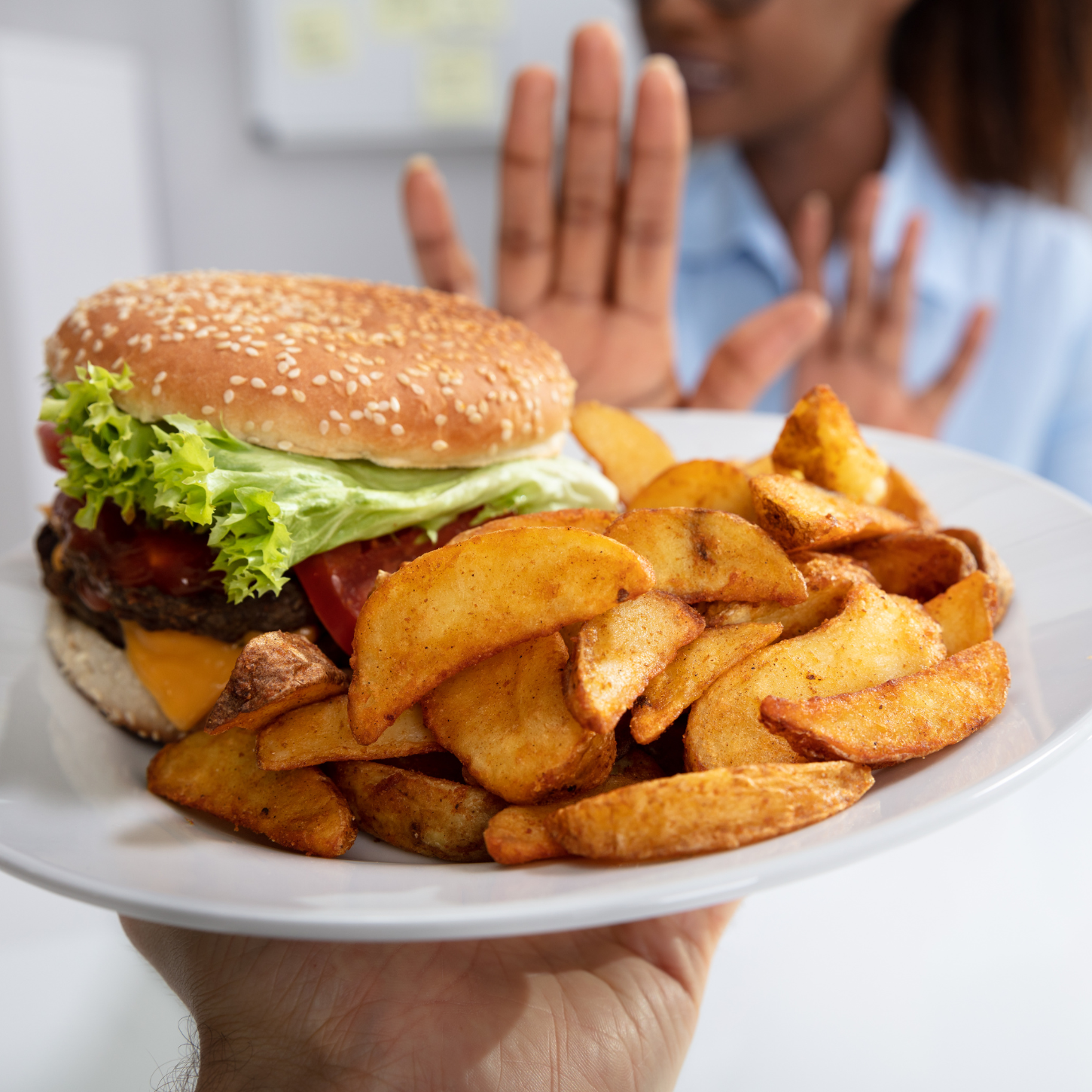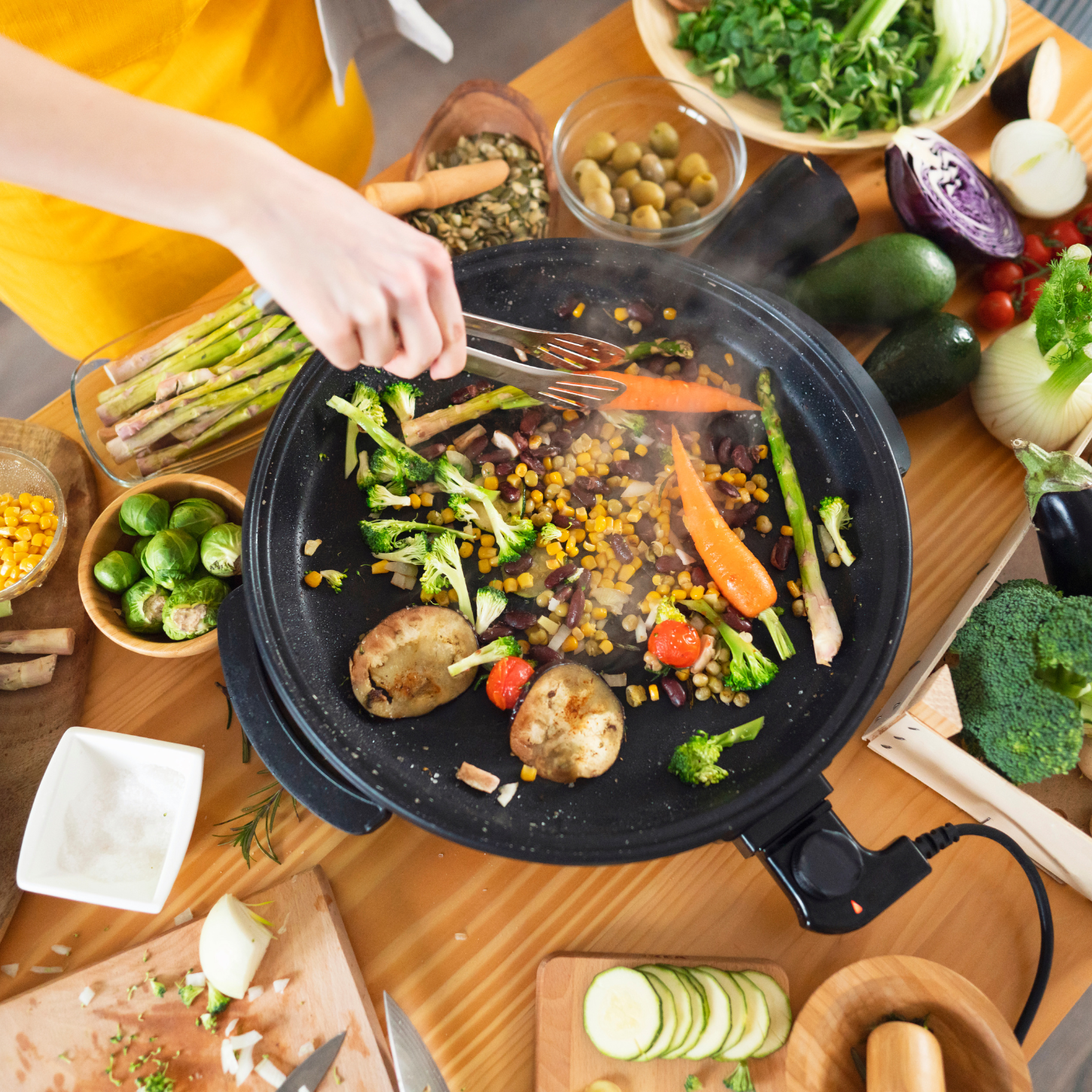If you’ve ever gone to the doctor with a tummy ache and felt like they were just shuffling papers, it might be that you have irritable bowel syndrome (IBS). IBS is defined as a functional disorder, meaning that despite no obvious medical abnormality, the person has digestive symptoms.
IBS is kind of the medical way of saying, “we have no clue what’s going on here!" which, unsurprisingly, doesn't always leave people feeling reassured.
Despite the lack of understanding, IBS is quite common. In fact, about 11% of the world’s population has IBS, and it affects about 1 in 5 people at some point in their lives. Females are 67% more likely to suffer from IBS than males.
However, while there isn't any one-size-fits all treatment for this mysterious disorder, understanding its contributing factors and symptoms can go a long way towards helping those affected feel in control again.
So, what exactly is irritable bowel syndrome? What causes it? And what are the worst foods that you should avoid to help alleviate its symptoms?
Table of Contents:
What is IBS?
IBS, or as some like to call it - "spastic colon,” is a pesky functional gastrointestinal disease that can give you quite the roller coaster ride with your bowel habits: extreme constipation one day and a wild bout of diarrhea the next. The struggle is real!
Other symptoms may include:
- Bloating
- Abdominal cramping and pain
- Excessive gas
- A sense of incomplete bowel evacuation
- Nausea and/or vomiting
- Heartburn
- Relief after defecation
- Straining at defecation
- Sense of urgency
- Passage of mucous
Unlike inflammatory bowel disease, such as Crohn’s disease or ulcerative colitis, with IBS, there’s nothing structurally wrong with the colon or other parts of the gastrointestinal system.
IBS is classified into three types, based on the symptoms the person experiences the most. They are:
- IBS-C: Constipation-dominant
- IBS-D: Diarrhea-dominant
- IBS-M: Mixed presentation, meaning that symptoms can fluctuate between constipation and diarrhea

Causes of IBS
While a lot more research into the causes of IBS is warranted, we do know a few things that trigger it:
1. Imbalanced microbiome
Your gut is a fragile ecosystem that is home to trillions of bacteria. When there are more "bad bugs" than "good bugs," it throws off the delicate balance and leads to dysbiosis. This can cause your gut immune system to go into overdrive, resulting in low-grade inflammation, altered gut motility, and changes in the gut-brain axis. These factors can contribute to IBS and exacerbate gut symptoms.
2. Multiple food sensitivities
Exposure to food antigens can cause inflammatory reactions in the gut which can lead to a leaky barrier and IBS symptoms. Interestingly, with food sensitivities, the onset of symptoms is typically delayed by several hours and it's not uncommon for people to develop sensitivities to multiple foods.
3. Lack of digestive enzymes or stomach acid
Not having enough stomach acid or digestive enzymes means you’re not able to break down and absorb your food properly, leading to fermentation, inflammation, and irritation of the gastric lining.
4. Altered gut motility
Our digestive system operates like a majestic wave, moving things along smoothly and efficiently. However, when we hit a roadblock like constipation or diarrhea, the wave slows or speeds up excessively. These irregularities in gut motility can pave the way for IBS troubles.
Now, there are many things that can affect the motility of the gut. For example, inflammation, SIBO, gastroparesis, medication side effects, and thyroid problems can all disrupt its flow.
5. Visceral hypersensitivity
Visceral hypersensitivity is a fancy way of saying you have an enhanced intestinal perception of pain, whether it’s due to underlying dysbiosis or low-grade inflammation. When you feel bloated, this may exacerbate the pain and discomfort due to inflammation and hypersensitivity.
6. Stress
When your doctor implies that it’s all in your head, he may be half right!
However, this is a very simplistic, not to mention condescending way to put it, and a good approach to health is one that is holistic, considering the mental just as much as the physical.
Science has recently discovered that there is a reason you may be feeling both anxious and bloated. The gut-brain connection shows us how our mental state directly impacts what's happening in the digestive tract.
When you get nervous, those "butterflies" are doing more than just flapping around- they have a real impact on the complex inner workings of your gut! Recent evidence suggests that psychological stress can play havoc with digestion by affecting the balance of your microbiome, motility, digestive enzyme secretion and function, and permeability.
 Studies have shown that the prevalence of psychological symptoms in patients with IBS is high. In fact, 40-60% of patients with functional gastrointestinal disorders experience psychiatric symptoms.
Studies have shown that the prevalence of psychological symptoms in patients with IBS is high. In fact, 40-60% of patients with functional gastrointestinal disorders experience psychiatric symptoms.
By understanding the way IBS can affect (and be affected by) this gut-brain connection, gives us new insights into how to better look after both physical AND mental health.
7. Infections
You can also develop IBS as a result of an infection.
For example, parasitic infections such as Blastocystis hominis (BH) and Dientameoba fragilis have been implicated.
Other common pathogenic culprits include species of Campylobacter and Salmonella, which can wreak havoc on the gut microbiome. Research suggests that one in ten cases of IBS can result from an infection.
8. SIBO
SIBO is where abnormally large amounts of commensal bacteria reside in the small intestine which can cause symptoms such as abdominal discomfort, bloating, diarrhea, constipation, nausea and intolerance to certain foods. SIBO has been found in up to 78% of patients suffering with IBS and can often be triggered after a bout of food poisoning or acute gastroenteritis.
9. Hormones
Hormones can also impact the development of IBS. Researchers have found that one hormone in particular, vasoactive intestinal peptide, can be abnormally high in patients with IBS.
Sex hormones, especially estrogen, can also contribute to IBS, as there are sex hormone receptors all along your GI tract. Researchers have also found a significant link between IBS symptoms and hormonal status during menstrual cycle phases, pregnancy, and menopause. As such, women are more likely to suffer from IBS than men.
It’s often worse for women during her period due to elevated prostaglandin levels which can lead to muscle contractions not only in the uterus, but also the gastrointestinal tract.
The Worst Foods for IBS
IBS ain't no one-size-fits-all disorder. Your triggers may be different than your neighbor's, and that's totally normal. But don't worry! By tuning in to your body, you can customize a food plan that caters to your gut's unique needs. And there are some common foods that are often associated with worse IBS symptoms:
-
Dairy
Milk lovers beware: Lactose, the main sugar in dairy products, may be causing your IBS symptoms to worsen.
This intolerance typically sets in as you stop relying on your mother's milk for your nutrients around age two or three, leaving you unable to produce the enzyme lactase to properly digest lactose. That's why a lactose-free diet is often recommended for IBS sufferers to alleviate their symptoms.
But it's not just lactose that's the problem. A pesky milk protein called A1 β-casein can also trigger symptoms, even in lactose-free products. So, if you're an IBS sufferer, ditch the milk and opt for plant-based sources.
-
Gluten
Many IBS sufferers find avoiding gluten significantly helps gut symptoms, even if they don’t have celiac disease. If you’re not sure if this is you, try eliminating gluten for one week, and see if your symptoms improve.
-
FODMAPS
Food intolerance testing is helpful to determine specific sensitivities. However, many people do benefit from doing a low FODMAP diet, and this is what most health professionals will tell you to do if you have IBS.
FODMAP is an anacronym for fermentable oligosaccharides, disaccharides, monosaccharides and polyols. FODMAP-containing foods are a normal part of the diet, and do not cause symptoms in most individuals. However, they are a group of sugars that may be difficult to digest if you have IBS. They are osmotic, meaning they attract water into the bowel and are poorly absorbed in the small intestine, which then leads to symptoms of IBS such as bloating, gas and diarrhoea.
If you answer yes to the following questions, then you may benefit from doing a low FODMAP diet:
- Do your symptoms worsen if you eat a lot of garlic or onions?
- Have you tried a probiotic, and it made you feel worse?
As you can see, the problem with FODMAPs is that they often come packaged in foods that are good for you, such as onions, garlic, many fruits, and legumes. 
FODMAPs are a normal part of the diet and have benefits for health, such as providing fibre and prebiotics for gastrointestinal health. Therefore, restricting dietary intake of a wide array of foods should generally be avoided if possible due to the risk of nutrient deficiencies.
It could also ultimately decrease your gut bacteria diversity and worsen your gut health down the road.
It’s better to get to the root of the problem! Rather than restricting entire food groups, focus on healing your gut with intentional steps to restore healthy function. Identify your threshold for a particular food, slowly reintroduce it back into your diet, and increase your intake over time.
-
Fatty foods
Another culprit is good ol' fat.
Studies show that fatty foods can trigger IBS symptoms. This is because they cause your colon to go into overdrive and make your tummy extra sensitive.
So, it's recommended that you limit your fat intake to 40-50 grams per day. That translates to about 20-25% of your daily energy from fat, if you're on an 1,800-calorie diet.
Keep in mind that everyone's response to fat is unique, making research on the topic rather elusive. To add, not all fats are created equal, some being the good kind, while others are just plain evil. That said, if you're keen on reducing your fat intake, steer clear of the absolute worst offenders, such as fried foods, processed oils, and the notorious saturated fats found in dairy, eggs, and red meat. Your stomach (and your heart) will thank you.
-
Caffeine
Love your morning jolt of caffeine to get you going?
For those with IBS, that cup of coffee (or Monster Energy if you’re crazy) could be a cause for concern. This digestive disruptor can rev up your colon and increase acid secretion. If you’re dealing with IBS-D (aka diarrhea central), it’s suggested to limit caffeinated beverages to a maximum of three per day.
-
Alcohol
If you like your booze, just know that it can lead to damage in your gut lining, mess with your intestinal motility, and make your IBS symptoms even worse (especially if you have IBS-D).
However, moderate drinking is usually fine. Just stick to one drink per day for women and two for men, with two alcohol-free days per week. But if you’re finding your IBS symptoms unbearable, consider bidding it farewell altogether.
-
Spicy food
Feeling the heat of your favorite spicy dish can be exhilarating... until your IBS symptoms come on full blast.
Reports show that fiery cuisine can ignite acid reflux and abdominal pain for many IBS sufferers, so be wary of how they affect you.
If they do send you running to the bathroom, it's best to minimize or avoid them altogether. If you can tolerate them well, celebrate- spices are some of the healthiest foods on the planet. So keep calm ad curry on (but continue to be mindful of your tummy’s reaction).
Recipe Spotlight: Avocado Cucumber Gazpacho
This is a great raw soup to enjoy during the hot summer months when you'd rather spend more time on the beach than in the kitchen.
The chilled soup helps to cool the body and regulates body temperature.
The avocado contains healthy fats which satisfy hunger and sustains energy levels while the cucumber nourishes and hydrates the cells on a deep level.
It’s an easy way to make use of different fresh garden herbs of choice when you have them on hand. Enjoy!













What Do You Think? Comment Below: